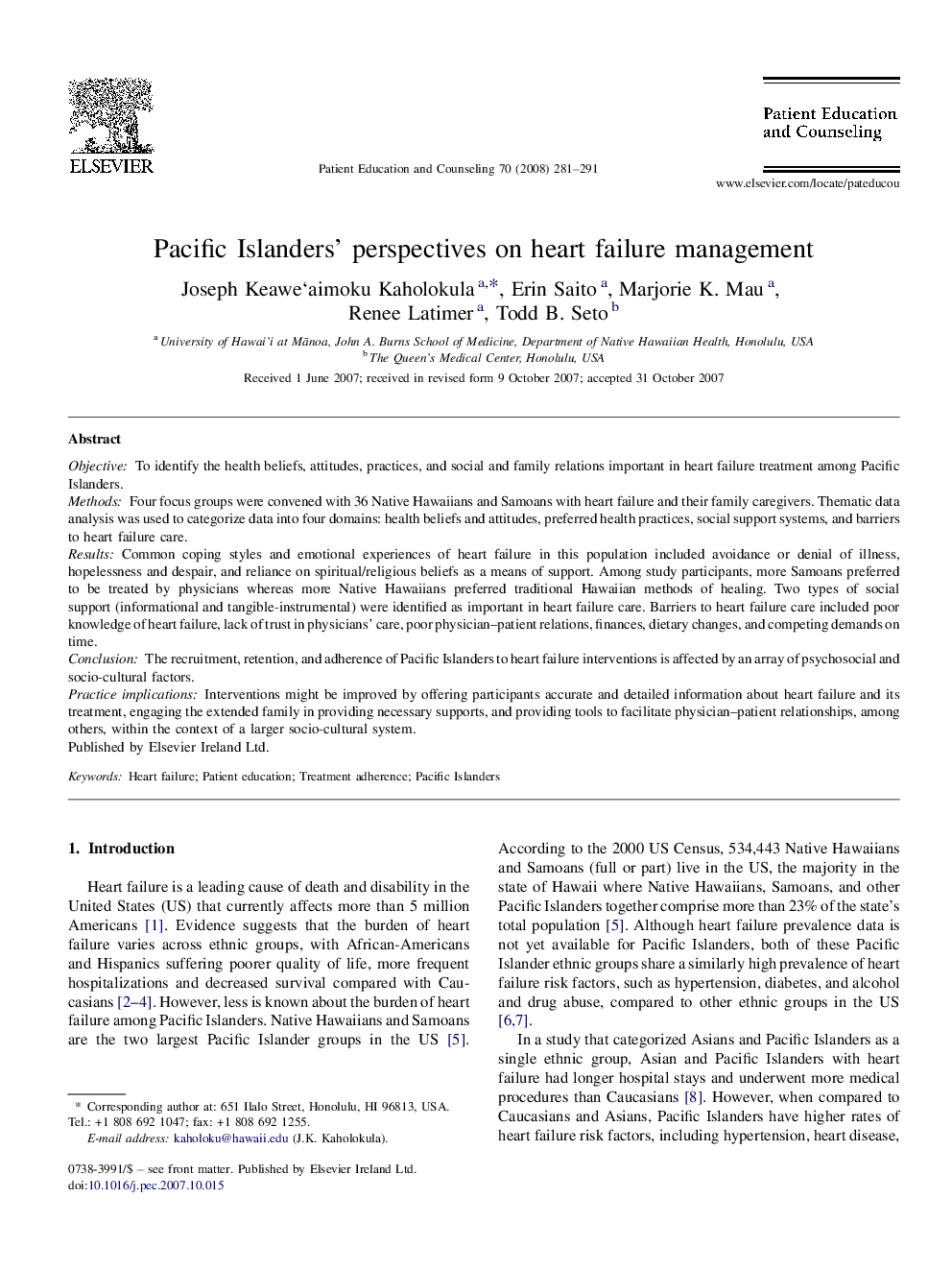| Article ID | Journal | Published Year | Pages | File Type |
|---|---|---|---|---|
| 3814324 | Patient Education and Counseling | 2008 | 11 Pages |
ObjectiveTo identify the health beliefs, attitudes, practices, and social and family relations important in heart failure treatment among Pacific Islanders.MethodsFour focus groups were convened with 36 Native Hawaiians and Samoans with heart failure and their family caregivers. Thematic data analysis was used to categorize data into four domains: health beliefs and attitudes, preferred health practices, social support systems, and barriers to heart failure care.ResultsCommon coping styles and emotional experiences of heart failure in this population included avoidance or denial of illness, hopelessness and despair, and reliance on spiritual/religious beliefs as a means of support. Among study participants, more Samoans preferred to be treated by physicians whereas more Native Hawaiians preferred traditional Hawaiian methods of healing. Two types of social support (informational and tangible-instrumental) were identified as important in heart failure care. Barriers to heart failure care included poor knowledge of heart failure, lack of trust in physicians’ care, poor physician–patient relations, finances, dietary changes, and competing demands on time.ConclusionThe recruitment, retention, and adherence of Pacific Islanders to heart failure interventions is affected by an array of psychosocial and socio-cultural factors.Practice implicationsInterventions might be improved by offering participants accurate and detailed information about heart failure and its treatment, engaging the extended family in providing necessary supports, and providing tools to facilitate physician–patient relationships, among others, within the context of a larger socio-cultural system.
